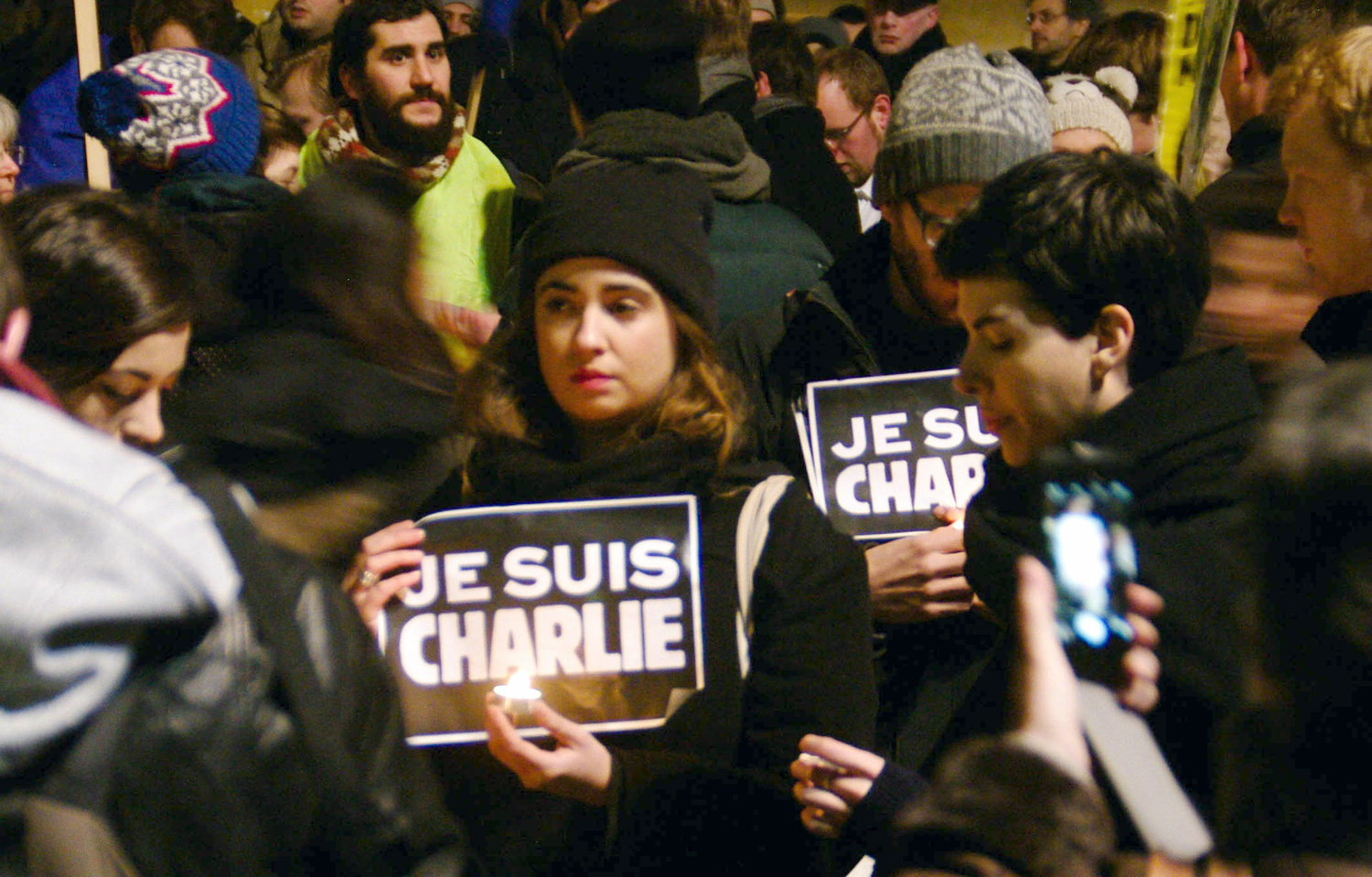A tale of 2 trials: Justice served and denied
As 2020 reached its end, so did two of the most important courtroom trials involving violent anti-Semitism to have occurred since the Second World War.
In France, 14 suspects in the January 2015 terrorist atrocities in Paris were all found guilty with hefty prison sentences that ranged up to 30 years. In Germany, the 28-year-old neo-Nazi gunman who murdered two people during an attempted massacre of Jews attending Yom Kippur services at a synagogue in Halle in October 2019 received a life sentence, which means, assuming he stays healthy, that he will spend several decades behind bars.
There were some important differences between these trials worth noting. In France, the three Islamist terrorists who carried out the attacks on the satirical magazine Charlie Hebdo — and the kosher Hyper Cacher supermarket two days later—were all killed in separate gun battles with police, whereas in Germany, neo-Nazi Stephan Balliet was captured alive.
Additionally, three of the 14 defendants in France were sentenced in absentia, including Hayat Boumedienne, the widow and dedicated operational partner of the Hyper Cacher killer, Amedy Coulibaly, who arrived in Islamic State-held territory in Syria at just about the time that her husband was killed by French police in the bloody denouement of the Hyper Cacher siege.
Yet both of these trials were inextricably linked by the chain of anti-Semitism. In the German case, that aspect was perhaps plainer to see because the target of the attack was a synagogue, whereas in France, staff at Charlie Hebdo, along with a policewoman murdered by Coulibaly in a separate incident, joined the Jewish victims at Hyper Cacher among the 17 dead.
That said, it’s not quite so simple. One also has to factor in the reluctance — not to say distaste — within the French judiciary for acknowledging any anti-Semitic motives among defendants in crimes that involve Jewish victims, even when these are staring them in the face, as lawyers for the victims’ families pointed out several times during the harrowing six-month trial. This was certainly not the issue with Balliet’s trial in Germany, where the searing hatred of Jews that drove his assault was front and center in the courtroom proceedings.
Neither of the two individuals murdered by Balliet was Jewish. The first victim was a 40-year-old woman who courageously confronted the neo-Nazi as he attempted to blast his way through the Halle synagogue’s robust security doors. Then, having failed to penetrate the synagogue but still determined to kill, Balliet sped off in his car to a nearby Muslim-owned kebab restaurant, where he shot dead a 20-year-old man who tragically chose that moment to get takeout.
Nonetheless, both of these people were victims of anti-Semitic violence, irrespective of whether they happened to be Jewish. To say otherwise is to separate Jews out from the rest of society, so that — in the words of the French Interior Minister following a 1980 terrorist attack on a synagogue in Paris in which non-Jewish people also lost their lives — you end up with “innocent French victims” who get caught up alongside the dead Jews, collateral damage among the intended targets.
I would argue that much the same judgment can be made concerning the Paris attacks, where Jewish and general institutions were targeted. Just as an obsession with supposed world Jewish domination controlled the actions of Stephan Balliet, so it was with the brothers Said and Cherif Kouachi, the Charlie Hebdo killers, and their close friends and collaborators, Coulibaly and Boumedienne. Coulibaly’s murder spree at the Hyper Cacher was evidence of that, but in the case of the Kouachis at Charlie Hebdo, hatred of Jews wasn’t far from their minds either.
• • •
Giving his testimony at the trial, Michel Catalano, a printer who worked at the Charlie Hebdo offices, recalled that the first question the Kouachi brothers asked him was, “Are you a Jew?” Catalano wept as he told the judges that he’d understood from the question that his life would have been taken had he answered in the affirmative.
In accordance with their extreme Islamist ideology — for the Kouachi brothers as well as for Coulibaly — “the Jews” were at the root of the evil that enabled Charlie Hebdo to print cartoons that lampooned the Prophet Muhammad. Just as for Balliet, “the Jews” were the reason why Germany had permitted the entry of hundreds of thousands of Syrian war refugees during 2015. That is why, when asked to explain his preference for shooting up a synagogue over a mosque, Balliet answered that he wanted to “fight the cause, not the symptoms.”
I’d like to end on the observation that the two trials I’ve discussed here were not the only high-profile trials involving anti-Semitism around the world in recent days.
Last week, a court in Buenos Aires acquitted Carlos Telleldin, a car-dealer charged with having supplied the truck that was used in the devastating July 1994 bombing of the AMIA Jewish center in the Argentine capital.
The day after that decision, which roiled Argentina’s Jewish community, a court on the other side of the globe in Sindh, Pakistan, released the four men accused of orchestrating the 2002 abduction and beheading of the American-Jewish journalist Daniel Pearl, whose agonizing last moments, captured on video, saw him utter the words, “My father is Jewish, my mother is Jewish, I am Jewish.”
If something approximating justice was served in Germany and France, by the same token it was denied in Argentina and Pakistan. That is why — however the courts of the world’s nations decide to treat anti-Semitism and the deadly violence that accompanies the hatred of Jews — Jewish communities need to keep calling it exactly as they see it.

 55.0°,
Overcast
55.0°,
Overcast 





